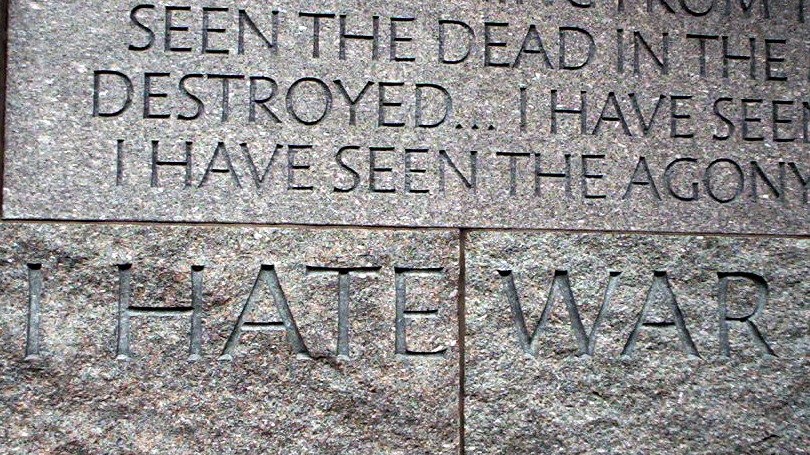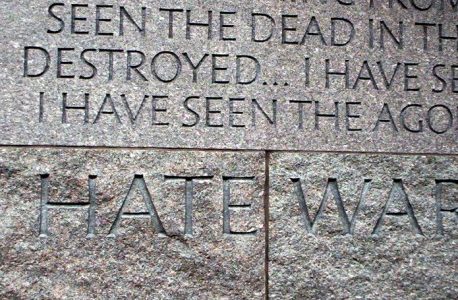The Barcelona Report was presented to the European Union High Representative for Common Foreign Policy, Javier Solana, on 15 September 2004, by the Study Group on Europe’s security capabilities.
Christine Titmus comments:
A building-block towards the abolition of war
“But what’s the alternative to violent force?” I feel the peace movement has never really been able to offer a well-thought-out, credible answer to this. Until now. A Human Security Doctrine for Europe – from the Centre for the Study of Global Governance (also referred to as the Barcelona Report) asserts the primacy of human rights in all operations: this distinguishes the human security approach from traditional state-based approaches. The report gives details of ‘A set of seven principles for operations in situations of severe insecurity that apply to both ends and means’. It’s not heavy reading either. Peace comes before human rights in classic peacekeeping, and victory comes before human rights in classic military interventions.
This report offers not only a ‘third way’ but one that is practically possible – and which treats all parties equally so no ‘losers’. The right to life, the right to housing, the right to freedom of opinion are to be respected and protected even in the midst of conflict. It also implies that those who commit gross human rights violations are treated as individual criminals rather than collective enemies. Of special interest to MAW is step 6, on the use of legal instruments. ‘A much larger investment will have to be made in civilian capabilities for law enforcement, ie police, court officials, prosecutors and judges.’
‘Terrorists, war criminals, human rights violators and drug traffickers should face fair trials according to international human rights standards.’ The report goes further: it asks for a ‘new legal framework to govern both the decision to intervene and operations on the ground. This would build on the domestic law of host states, the domestic law of sending states, international criminal law, international human rights law, and international humanitarian law.’ Margaret Melicharova of the Peace Pledge Union says of the report: “The idea of a rapid-response Human Security Force (eventually to be renamed without the word ‘force’?) could be a viable building-block towards the abolition of war. Its new requirements of the military – in a role more like that of police, fire-fighters or disaster relief engineers – move towards a new concept of military training: training for co-operation not aggression, rescue not retribution, problem-solving not power-wielding.
The EU would have to make additional investment in human security, but some resources would be freed by restructuring defence budgets. The report remarks how ‘Traditional war-fighting is unacceptable viewed through a human rights lens’ – isn’t that a huge step towards a change in perception? We know that the move towards a war-free world can’t be made in one leap. Maybe, insisting on the ‘primacy of human rights,’ we can get there from here? Do ask to discuss this report with your MP and MEP.



